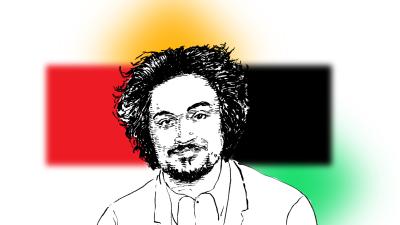Indiana Jones 5 could be a grave for the Hollywood industry. Several films released by that industry have already flopped this year. Cinema is in a leg-high competition with new formats that did not exist before. As early as the 1960s, the world's cinemas were in crisis because television was triumphant. Today, cinema is challenged by the Internet and live streaming. Who would pay 15 dollar to go to the cinema when you can watch Netflix or similar providers for half the price a month?
The new "Indy" film is thus a symptom in more ways than one. The era of the film with hundreds of millions of dollars invested is probably coming to an end. It is simply no longer worthwhile. Christopher Nolan's film "Oppenheimer" already points in this direction. It too had a budget of 100 million dollars. But this was due to the eccentricity of its director Christopher Nolan, who insisted on IMAX and top actors. Largely set indoors and with comparatively few special effects, the film hints at what a plainer Hollywood landscape might look like.
But the new film with the aged leading actor Harrison Ford shows even more. It is not only a sign of the end of an Hollywood era, but also of a civilisation and its self-image, or rather of the conflict that prevails in the final days of that civilisation. The female sidekick resists Ford more than he is in a symbiotic relationship. The younger generation knows everything better, can do everything better. Indy, himself aged into a relic, is given precisely this feeling in every scene: namely, of being just such a relic.
The original trilogy establishes the 1930s as the actual age of the Indiana Jones films. It is not unimportant to mention that Indy is in many ways a representative of the "Lost Generation". It is a generation that scarred, among others, by the experiences of World War 1 lost the "connection" to what used to be true. They no longer have a place of retreat like their ancestors. The topos can manifest itself in the loss of the family, the loss of religion or the loss of faith in technology. The man of the "Lost Generation" no longer finds fulfilment. He may still understand what it means to love, believe and hope, but he himself can no longer love, believe or hope with the same conviction as the previous generations.
This worldview is especially prevalent in the films when Indy comes into contact with the occult. When Indiana Jones searches for the Holy Grail, his father has to remind him that this is not about a mere archaeological artefact that promises fame and glory, but about "more than that". The quest for the Grail is a battle of good against evil. It is striking how in "Indiana Jones and the Last Crusade", especially in the last fifth, Christian themes around humility, faith and sacrifice take a central place. The third film in the series goes beyond pure popcorn cinema. Redemption, the settlement of guilt and reconciliation run through the plot as concepts in the conflict between father and son. The Grail theme means that The Last Crusade has become a thoroughly Western film with Christian values, whether intended or unintended.
Indiana Jones was therefore still on the threshold as a representative of the "Lost Generation". He does not despise the values of the past; he only fails to internalise and live them. He does not want a revolution, but is trying to make his way in a seemingly disenchanted world where the myth is still bubbling under the surface. This uncertainty, this vacillation between materialism and idealism, between cynicism and religion, is also evident in the historical reality of the 1910s up to 1940s.
It's a different story with the 1960s, in which the film is set. This generation wants upheaval. It is - unlike Indy - ideological. And it reproaches the previous generation. Indy as a representative of the white, old, toxic male world no longer fits into the present either. In this sense, the 1930s correspond to the 1980s: what was still normal then, what did not arouse affront then, what values still prevailed then - must now be put in the dock. Indy is not only deconstructed in the process; the loss of his physical and mental strength deconstructs him from the inside.
With Indiana Jones, a hero falls, even if it is only a fictional one. He embodied the masculine principle, at the same time a passionate, affirmative spirit of adventure. The "Faustian" of the Occident was also tangible in him. Towards the end of the film there is a way out for Indy, a dignified farewell. In the past he meets Archimedes, whom he had admired all his life. The offer to spend his twilight years in 3rd century BC Sicily is tempting. This is an archaeologist's dream: not just to write about and reconstruct what one loves; but to live in that time, to grasp it and breathe it. It would have been the best of all possible endings.
But the woke, deconstructive and anti-life zeitgeist strikes him in the truest sense when his companion knocks out the seasoned archaeologist, dragging him back to the present. He is not granted death on the Sicilian cape in the setting sun alongside Archimedes, among the lost ancient Greek songs of antiquity, as would be worthy of a hero. Instead, Indy is reunited with his wife. A petty bourgeois idyll for the finder of the Ark of the Covenant and the Nazi hunter - you can't mutilate a hero any worse than that. In "Dial of Destiny" not only Indiana Jones died, but also a piece of the Occident.
Read also
The AfD: Caught between Realpolitik and Dreaming
Things are actually going well for the AfD. The right-wing nationalist party is soaring in the polls and is potentially the third strongest party in the country. It has had to do little to achieve this.
Marco Gallina
Journalists on state payroll
For example, the federal government has spent almost 1.5 million euros on commissions to journalists over the last five years – whereby a significantly higher part was spent on public service journalists.
Marco Gallina
The New Wave of German Emigration
This wake-up call dates back to the 2000s. However, the problem is as topical now as it was then.
Marco Gallina
The nuclear phase-out: The Germans' dogma
Europe is an officially secularised continent. Christianity is seen either as folklore or a disturbing relic. Significantly, the 19th century transformed Western societies in several ways.














Comments (0)